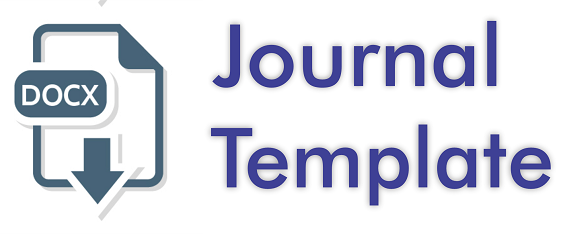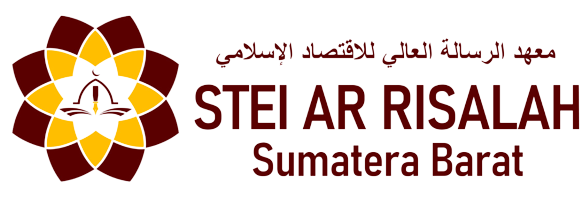Waqf and Sustainability Efforts: Islamic Philanthropy Against Global Change
DOI:
https://doi.org/10.59107/ri.v3i1.73Keywords:
Waqaf, Global Change, SustainabilityAbstract
Waqaf, as an instrument of Islamic philanthropy, has great potential to contribute to social and economic welfare. This research aims to explore the role of waqf in supporting sustainability as a form of Islamic philanthropy in the context of global change. The findings of this research examine waqaf's contribution to sustainability efforts in the face of global change and identify key barriers to effective waqaf implementation. The lack of clear and uniform regulatory standards regarding waqaf in different countries, leading to difficulties in management and enforcement and a lack of knowledge and skills in waqaf management among managers and stakeholders. Blockchain technology offers a solution that can improve the efficiency and effectiveness of waqaf management, by creating a more transparent, accountable and secure system. Therefore, international collaboration and the implementation of modern technologies such as blockchain are necessary to maximize waqaf's contribution in facing global change and achieving sustainability goals.
Downloads
References
Amin, A., Putra, R., Subeno, H., Bashir, H., Andespa, W., & Ridwan, A. (2023). Penerapan dan Urgensi Model Model Cash Waqaf (Studi pada Hasil Jurnal Penelitian di Indonesia). Journal on Education, 5(2), 3095–3107
Firdaus, A., Prasetiyo, L., Syariah, E., & Ponorogo, I. (2024). Inovasi Sosial di Hutan Wakaf Bogor dalam Mencapai Pembangunan Berkelanjutan. 10(01), 64–72.
Guntoro, S., & Kurnialis, S. (2021). TRANSFORMASI DIGITAL WAKAF BWI DALAM MENGHIMPUN. 4(November).
Hisyamuddin, M., & Halim, A. B. (2023). Public servants ’ confidence in cash waqf administration via waqf administrator agents kepercayaan penjawat awam terhadap pengurusan wakaf tunai melalui ejen pentadbir wakaf. 4(1), 121–153.
Ilmiah, J., & Islam, E. (2022). Strategi Digital Fundraising Dalam Penghimpunan Dana Zakat : Studi Kasus Lembaga Amil Zakat Global Zakat. 8(01), 67–79.
Ilmiah, J., Syariah, K., Aurellia, I. F., Indrasari, W., & Putri, A. F. (2024). Eco-Iqtishodi Transformasi Wakaf : Peluang Investasi Publik untuk Pembangunan Berkelanjutan. 5, 93–98.
Maisyarah, A., & Hadi, K. (2024). Implementasi Model Pengelolaan Wakaf Berbasis Digital dalam Meningkatkan Tujuan Pembangunan Berkelanjutan (Sdg’s). Jurnal Ilmiah Ekonomi Islam, 10(1), 887–894.
Maulida, R., & Ridwan, R. (2017). Analisis akuntabilitas pengelolaan waqaf pada baitul mal provinsi aceh. Syiah Kuala University.
Nazah, R. K. (2022). NIDHOMIYA : Research Journal of Islamic Philanthropy and Disaster Optimalisasi Potensi Wakaf Tunai sebagai Penggerak Bisnis Melalui Pengembangan Fintech Wakaf di Era Digitalisasi. 1(1).
Pembangunan, S., & Pelaburan, D. A. N. (2016). PERSPEKTIF SYARIAH The Strategy of Sustainable Waqf Development and Investment from the Perpective of Shariah. 24(2), 237–270.
Prahara, R. S., Kurnawan, M. V. A. B., Muhammad, F. F., & Syahrial, M. V. A. (2023). Green Industry as a Tourism-Based MSME Development Strategy in Supporting a Sustainable Future (Case Study in Cowindo Sendang District, Tulungagung District, East Java). Majapahit Journal of Islamic Finance and Management, 3(1), 111–126.
Pramewari, M. P., Mutiara, D., Azizah, S., & Aji, G. (2024). Mengkritisi Implementasi Standar Akuntansi Syariah dalam Pengelolaan Wakaf di Era Society 5.0. Profit: Jurnal Manajemen, Bisnis Dan Akuntansi, 3(3), 80–89.
Purwatiningsih, A. P. (2021). Masyarakat Kota Semarang Dan Filantropi Islam. Penerbit NEM.
Rohim, A. N. (2021). Optimalisasi Wakaf sebagai Instrumen Pembiayaan UMKM untuk Pengembangan Industri Halal: The Optimization of Waqf as a MSME Financing Instrument for the Halal Industry Development. Jurnal Bimas Islam, 14(2), 311–344.
Siregar, L. M., & Setiawan, P. (2020). Wakaf sebagai ibadah sosial berkelanjutan. Tajdid: Majalah Ilmu Pengetahuan Dan Pemikirab Keagamaan, 23(2).
Suryadi, N., Yusnelly, A., Islam, U., Sultan, N., Kasim, S., & Uang, W. (2019). Pengelolaan wakaf uang di indonesia. 2(1), 27–36.
Suryani, E., & Mursyidah, A. (2020). Manajemen Wakaf Berbasis Teknologi Blokchain Dalam Meningkatkan Produktifitas Nadzir Dan Kebijakan Sustainable Development Goals. Reslaj: Religion Education Social Laa Roiba Journal, 2(1), 18–32.
Syaifullah, H., Idrus, A., Muttaqien, M. K., Zuhra, A., & Diah, A. (2023). Pengelolaan dan
Pengembangan Wakaf Produktif : Studi Interkoneksi Bank Umum Syariah ( BUS ) dengan Lembaga Filantropi Islam. 4(2).
Syariah, P. E., & Fitrianto, A. R. (2023). Social Intrepreneurship Sebagai Gagasan Inovasi Sosial Bagi Pembangunan Perekonomian Masyarakat Berdasarkan. 9(01), 715–725.
Urfiyya, K. (2021). DIGITAL SYSTEM BLOCKCHAIN SEBAGAI STRATEGI UNTUK OPTIMALISASI PENGELOLAAN DANA ZAKAT : STUDI. 17(02), 83–95. https://doi.org/10.23971/jsam.v17i2.3157
Zoni, A., & Mubarok, S. (2020). Prospek Nazhir Wakaf Global Berbasis Pesantren di Era Digital Nazhir Prospect of Global Waqf Based on Pesantren ( Islamic Boarding Schools ) in the Digital Era. 13(1).
Downloads
Published
Issue
Section
License
Copyright (c) 2024 RISALAH IQTISADIYAH: Journal of Sharia Economics

This work is licensed under a Creative Commons Attribution 4.0 International License.
License
The non-commercial use of the article will be governed by the Creative Commons Attribution license as currently displayed on http://creativecommons.org/licenses/by/4.0/. This licence allows the user to distribute, remix, tweak, and build upon the licensed work, including for commercial purposes, as long as the original author is credited.
Author’s Warranties
The author warrants that the article is original, written by stated author/s, has not been published before, contains no unlawful statements, does not infringe the rights of others, is subject to copyright that is vested exclusively in the author and free of any third party rights, and that any necessary written permissions to quote from other sources have been obtained by the author/s.
User Rights
Under the Creative Commons Attribution license, the author(s) and users are free to share (copy, distribute and transmit the contribution).
Rights of Authors
Authors retain the following rights:
- copyright, and other proprietary rights relating to the article, such as patent rights,
- the right to use the substance of the article in future own works, including lectures and books,
- the right to reproduce the article for own purposes, provided the copies are not offered for sale,
- the right to self-archive the article.
Co-Authorship
If the article was prepared jointly with other authors, the signatory of this form warrants that he/she has been authorized by all co-authors to sign this agreement on their behalf, and agrees to inform his/her co-authors of the terms of this agreement.
Termination
This agreement can be terminated by the author or RISALAH IQTISADIYAH: JOURNAL OF SHARIA ECONOMICS upon two months’ notice where the other party has materially breached this agreement and failed to remedy such breach within a month of being given the terminating party’s notice requesting such breach to be remedied. No breach or violation of this agreement will cause this agreement or any license granted in it to terminate automatically or affect the definition of RISALAH IQTISADIYAH: JOURNAL OF SHARIA ECONOMICS.
Royalties
This agreement entitles the author to no royalties or other fees. To such extent as legally permissible, the author waives his or her right to collect royalties relative to the article in respect of any use of the article by RISALAH IQTISADIYAH: JOURNAL OF SHARIA ECONOMICS or its sublicensee.
Miscellaneous
RISALAH IQTISADIYAH: JOURNAL OF SHARIA ECONOMICS will publish the article (or have it published) in the Journal, if the article’s editorial process is successfully completed and RISALAH IQTISADIYAH: JOURNAL OF SHARIA ECONOMICS or its sublicensee has become obligated to have the article published. RISALAH IQTISADIYAH: JOURNAL OF SHARIA ECONOMICS may conform the article to a style of punctuation, spelling, capitalization and usage that it deems appropriate. The author acknowledges that the article may be published so that it will be publicly accessible and such access will be free of charge for the readers. RISALAH IQTISADIYAH: JOURNAL OF SHARIA ECONOMICS will be allowed to sublicense the rights that are licensed to it under this agreement.


.png)
.png)






